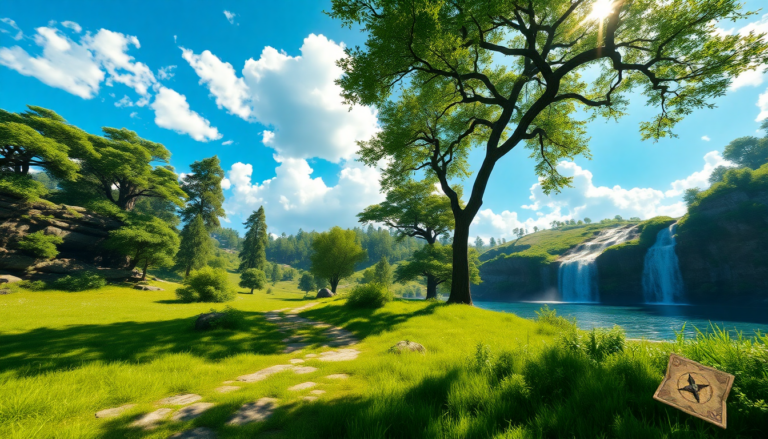Argomenti trattati
Open-world games have become a defining genre in gaming culture, sparking vibrant discussions among players around the globe. But what exactly qualifies a game as open-world? In this article, we’ll take a personal yet analytical journey into the essence of open-world gaming, tracing its roots and exploring how it has evolved over the years.
Defining Open-World Games
At its core, an open-world game invites players to traverse vast environments without the linear constraints that often bog down traditional gaming experiences. But here’s a thought: can a game truly be considered open-world if it only allows players to move freely between segmented maps? Titles like Dragon Age: Inquisition challenge this concept, offering expansive areas to explore while maintaining a structure that can feel a bit more limiting than fully open worlds.
The fascination with open-world gaming can be traced back to the early 2000s, especially with the launch of Fable in 2004. For many gamers—including myself—this was a pivotal moment. It marked the first real dive into a universe where choices had tangible impacts on gameplay. The thrill of uncovering every hidden corner, reading gravestones, and getting lost in the narrative made it an unforgettable experience.
Despite facing a mixed reception at launch, Fable laid the groundwork for the open-world genre. It introduced mechanics that encouraged exploration and interaction within a living, breathing world, igniting a lifelong obsession that would only grow with future titles.
The Evolution of Open-World Gaming
Fast forward to today, and we find a rich tapestry of open-world games, each vying for a piece of the spotlight. From the sweeping landscapes of Skyrim to the chaotic liberty of Grand Theft Auto, the genre has undergone dramatic evolution. However, not all open-world titles are created equal. The shift from linear gameplay to open exploration has its fair share of challenges.
Take Horizon Zero Dawn, for example. It captivated players with stunning visuals and a meticulously crafted world. But its sequel, Horizon Forbidden West, has received mixed reviews, showcasing the difficulty of maintaining innovation within a beloved framework. The real challenge? Balancing player freedom with meaningful content and engaging narratives.
As we dissect what truly makes an open-world game great, several key criteria come to light. A successful title must offer a vibrant world that feels alive, complete with engaging quests and a solid narrative. Players should feel the weight of their choices, enhancing immersion. While the ability to explore without rigid boundaries is essential, the experience must also be rich with depth and intrigue.
A Timeline of Impactful Open-World Games
Looking back at the history of open-world gaming, we can pinpoint critical milestones that shaped the genre. The release of Fallout 1 in 1997 was a significant turning point, introducing a level of interactivity and consequence that really resonated with players. Following this, titles like Morrowind and Fable expanded on these ideas, pushing the limits of what players could expect from an open-world experience.
As we reflect on this evolution, it’s crucial to recognize the influence of earlier games that, while not strictly open-world, laid the groundwork for future innovations. Titles like The Legend of Zelda and Mercenary explored open environments, albeit with constraints that modern audiences might find a bit restrictive.
By understanding the trajectory of open-world gaming, we can truly appreciate the genre’s complexity and the ongoing debates surrounding it. As we look ahead, the conversation will continue to evolve, inviting fresh perspectives and experiences that challenge our definitions and expectations. Are you ready to dive into the next chapter of open-world adventures?

